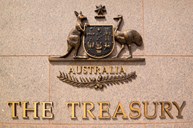Have you dipped a toe into cryptocurrency during the past financial year? It’s a big area of growth – with one in six Aussies taking the plunge, including 31% of Gen Z – and there’s lots to be excited about. But don’t forget to make sure you stay on top of the tax side of things. The ATO is paying particular attention to cryptocurrency investors, so it’s important to be well informed.
Rapid growth in the area means that regulators have had difficulty keeping up in some ways, so there is a lot of confusion surrounding guidelines and how to include cryptocurrency in your tax return. If you’re unsure about this, you’re definitely not alone. For example, one common misconception is that income from cryptocurrency is tax free, or only taxable when converted back to Australian dollars, but this is certainly not the case.
Here are some other common areas of uncertainty:
Can the ATO see my cryptocurrency holdings?
Yes, they can. The ATO has set up agreements with the Australian data exchanges that give them the ability to match information with personal tax returns. So they definitely have the ability to see your holdings, and you should be completely transparent about this in your tax return (as you should be with all of your income and expense details).
Can a tax agent help me work out the tax implications of cryptocurrency trading?
Yes, provided they are experienced and up to date with Cryptocurrency tax changes. Some tax agents lack knowledge about cryptocurrency and may fail to ask you the right questions about it, creating the possibility of liability for you. You need to make sure you work with someone who can give you advice on how to correctly manage your cryptocurrency holdings, for example when it comes to recording your activity on exchanges. All our consultants at H&R Block are trained, if you are working with another tax agent we recommend you call and check first.
What’s the difference between cryptocurrency trading and cryptocurrency investing?
Put simply, if you’re purchasing cryptocurrency for the future and plan to buy it and hold it for long term gain, then you’re an investor. If you’re buying and selling cryptocurrency over the short term to make profits, then you’re a trader. If you’re an investor, you’ll need to pay capital gains tax on any profits made when selling cryptocurrency, but traders will need to list their profits as business income and pay income tax accordingly.
If you have already purchased cryptocurrency or are looking to make a purchase in the future, you’re strongly advised to look beyond the info offered by cryptocurrency exchanges and speak to an experienced tax professional to make sure you stay on top of things, and don’t get on the wrong side of the ATO.
The tax experts at H&R Block are here to help you, so give us a call any time!
Rapid growth in the area means that regulators have had difficulty keeping up in some ways, so there is a lot of confusion surrounding guidelines and how to include cryptocurrency in your tax return. If you’re unsure about this, you’re definitely not alone. For example, one common misconception is that income from cryptocurrency is tax free, or only taxable when converted back to Australian dollars, but this is certainly not the case.
Here are some other common areas of uncertainty:
Can the ATO see my cryptocurrency holdings?
Yes, they can. The ATO has set up agreements with the Australian data exchanges that give them the ability to match information with personal tax returns. So they definitely have the ability to see your holdings, and you should be completely transparent about this in your tax return (as you should be with all of your income and expense details).
Can a tax agent help me work out the tax implications of cryptocurrency trading?
Yes, provided they are experienced and up to date with Cryptocurrency tax changes. Some tax agents lack knowledge about cryptocurrency and may fail to ask you the right questions about it, creating the possibility of liability for you. You need to make sure you work with someone who can give you advice on how to correctly manage your cryptocurrency holdings, for example when it comes to recording your activity on exchanges. All our consultants at H&R Block are trained, if you are working with another tax agent we recommend you call and check first.
What’s the difference between cryptocurrency trading and cryptocurrency investing?
Put simply, if you’re purchasing cryptocurrency for the future and plan to buy it and hold it for long term gain, then you’re an investor. If you’re buying and selling cryptocurrency over the short term to make profits, then you’re a trader. If you’re an investor, you’ll need to pay capital gains tax on any profits made when selling cryptocurrency, but traders will need to list their profits as business income and pay income tax accordingly.
If you have already purchased cryptocurrency or are looking to make a purchase in the future, you’re strongly advised to look beyond the info offered by cryptocurrency exchanges and speak to an experienced tax professional to make sure you stay on top of things, and don’t get on the wrong side of the ATO.
The tax experts at H&R Block are here to help you, so give us a call any time!
Share with your friends

Need To Include Crypto In Your Return?
Book an appointment today and let us help you minimise your capital gains tax and realise any losses from your cryptocurrency
Related Articles
The proposed $1,000 standard tax deduction applies to the 2026–27 tax year, not the current retur...
5 min read
The ATO is cracking down on tax returns in 2025. See what’s on the ATO's hitlist, from work-relat...
4 min read
See how Labor and the Coalition’s 2025 tax policies could affect your income, deductions and hous...
min read
Discover key tax measures in the 2025 Australian Federal Budget, including tax cuts for individua...
4 min read




.png?width=55&height=48&ext=.png)
-1.svg)

